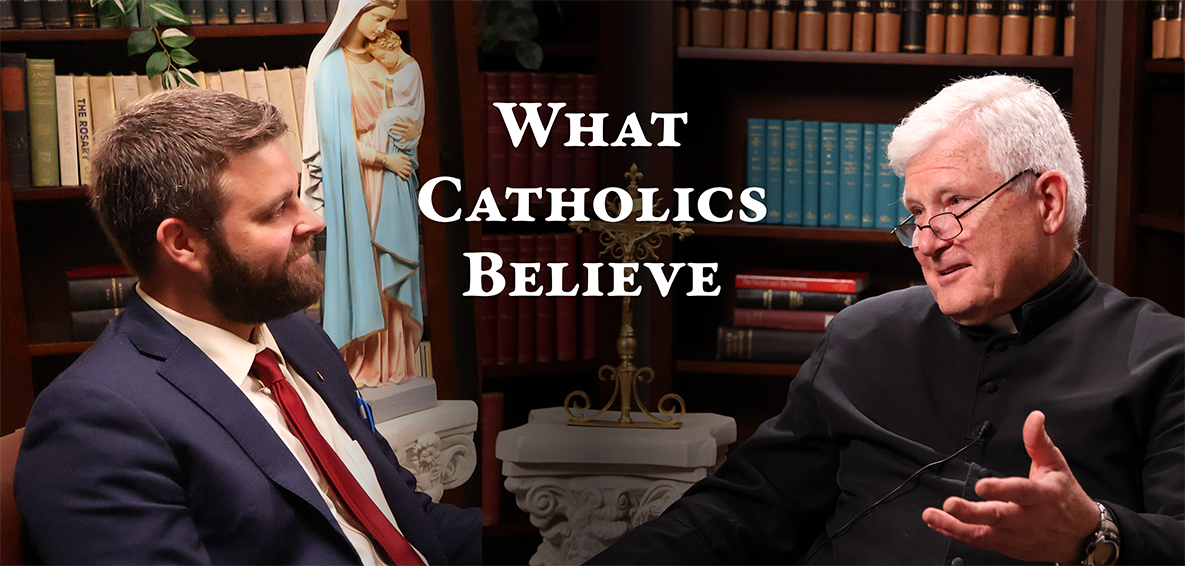The Holy Sacrifice of the Mass: The True Renewal — or a Mere Memorial?

Does Jesus Christ come to Mass? Not only does Our Lord come to Mass — He IS the Mass. The Catholic Church teaches that the Mass is the unbloody Sacrifice of Christ on the Cross. It is "unbloody" in that Christ, "having died once, dieth now no more." Yet the Priest offering and the Victim offered are the same Christ, both on the Cross and on the Altar. And the purpose of the Sacrifice is also exactly the same: the redemption from sin. Mankind could always offer to God sacrifices of praise and thanksgiving and supplication. Only the Divine Redeemer could offer a sacrifice to obtain for us the forgiveness of our sins. Thus, to be the same Sacrifice as that of Christ on the Cross, the Mass must also be the sacrifice of reparation. If it is not the propitiatory sacrifice of reparation, it is not Mass!
The prayers of the Offertory — one of the three essential parts of the Mass — state the purpose (i.e. the "ends") of the sacrifice being offered. The significance of the Catholic doctrine of propitiation for sin is made clear in the Offertory prayers of the traditional Mass:
At the offering of the "host" — meaning sacrificial victim: "Accept, O holy Father, almighty and eternal God, this spotless host, which I, Thy unworthy servant, offer unto Thee, my living and true God, for my innumerable sins, offenses and negligences, and for all here present: as also for all faithful Christians, both living and dead, that it may avail both me and them for salvation unto life everlasting. Amen."
At the offering of the chalice: "We offer unto Thee, O Lord, the chalice of salvation, beseeching Thy clemency, that it may ascend before Thy divine Majesty, as a sweet savor, for our salvation, and for that of the whole world. Amen."
In the Offertory prayers of the true Mass, the nature of the Mass as the Sacrifice of reparation is made absolutely clear, both in the plea for forgiveness for "sins, offenses and negligences" at the offering of the host, and the plea for clemency — mercy — at the offering of the chalice. The offertory in the new order liturgy of Paul VI deletes this essential propitiatory character of the Sacrifice of Christ on the Cross:
The new prayer for offering bread: Blessed are you, Lord, God of all creation. Through your goodness we have this bread to offer, which earth has given and human hands have made. It will become for us the bread of life. Blessed be God forever!
The new prayer for offering wine: Blessed are you, Lord, God of all creation. Through your goodness we have this wine to offer, fruit of the vine and work of human hands. It will become our spiritual drink. Blessed be God forever!
This transformation of the Catholic prayers of the Offertory of the Mass is not merely a change. It is rather an exchange of the Catholic prayers for what are purported to be prayers adapted from a Jewish Passover celebration. The significance of this substitution is made clear by the Council of Trent, which decreed: "If anyone saith that the Sacrifice of the Mass is only a sacrifice of praise and thanksgiving, or that it is a bare commemoration of the Sacrifice consummated on the Cross, but not a propitiatory sacrifice...let him be anathema." (Session XXII, Canon 3)

